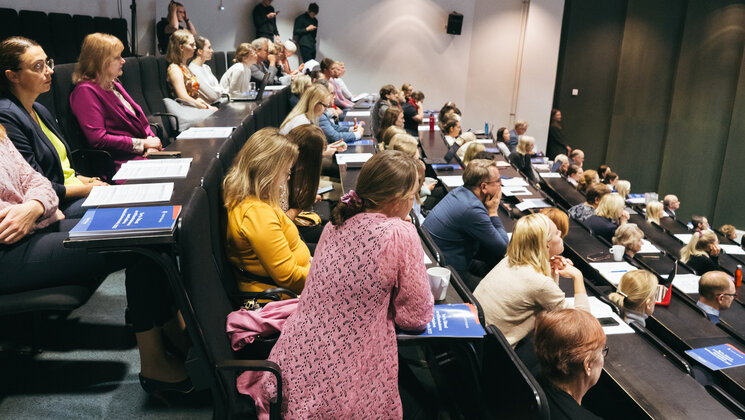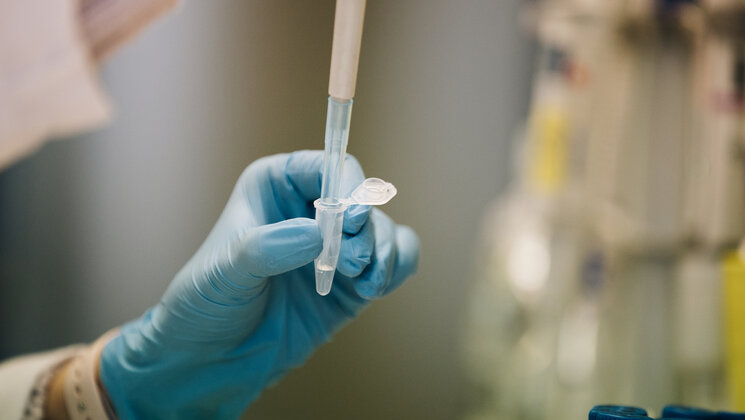-
Faculty of Arts and HumanitiesDean's Office, Faculty of Arts and HumanitiesJakobi 2, r 116-121 51005 Tartu linn, Tartu linn, Tartumaa EST0Institute of History and ArchaeologyJakobi 2 51005 Tartu linn, Tartu linn, Tartumaa EST0Institute of Estonian and General LinguisticsJakobi 2, IV korrus 51005 Tartu linn, Tartu linn, Tartumaa ESTInstitute of Philosophy and SemioticsJakobi 2, III korrus, ruumid 302-337 51005 Tartu linn, Tartu linn, Tartumaa EST0Institute of Cultural ResearchÜlikooli 16 51003 Tartu linn, Tartu linn, Tartumaa EST0Institute of Foreign Languages and CulturesLossi 3 51003 Tartu linn, Tartu linn, Tartumaa EST0School of Theology and Religious StudiesÜlikooli 18 50090 Tartu linn, Tartu linn, Tartumaa EST0Viljandi Culture AcademyPosti 1 71004 Viljandi linn, Viljandimaa EST0Professors emeritus, Faculty of Arts and Humanities0Associate Professors emeritus, Faculty of Arts and Humanities0Faculty of Social SciencesDean's Office, Faculty of Social SciencesLossi 36 51003 Tartu linn, Tartu linn, Tartumaa EST0Institute of EducationJakobi 5 51005 Tartu linn, Tartu linn, Tartumaa EST0Johan Skytte Institute of Political StudiesLossi 36, ruum 301 51003 Tartu linn, Tartu linn, Tartumaa EST0School of Economics and Business AdministrationNarva mnt 18 51009 Tartu linn, Tartu linn, Tartumaa EST0Institute of PsychologyNäituse 2 50409 Tartu linn, Tartu linn, Tartumaa EST0School of LawNäituse 20 - 324 50409 Tartu linn, Tartu linn, Tartumaa EST0Institute of Social StudiesLossi 36 51003 Tartu linn, Tartu linn, Tartumaa EST0Narva CollegeRaekoja plats 2 20307 Narva linn, Ida-Virumaa EST0Pärnu CollegeRingi 35 80012 Pärnu linn, Pärnu linn, Pärnumaa EST0Professors emeritus, Faculty of Social Sciences0associate Professors emeritus, Faculty of Social Sciences0Faculty of MedicineDean's Office, Faculty of MedicineRavila 19 50411 Tartu linn, Tartu linn, Tartumaa ESTInstitute of Biomedicine and Translational MedicineBiomeedikum, Ravila 19 50411 Tartu linn, Tartu linn, Tartumaa ESTInstitute of PharmacyNooruse 1 50411 Tartu linn, Tartu linn, Tartumaa ESTInstitute of DentistryL. Puusepa 1a 50406 Tartu linn, Tartu linn, Tartumaa ESTInstitute of Clinical MedicineL. Puusepa 8 50406 Tartu linn, Tartu linn, Tartumaa ESTInstitute of Family Medicine and Public HealthRavila 19 50411 Tartu linn, Tartu linn, Tartumaa ESTInstitute of Sport Sciences and PhysiotherapyUjula 4 51008 Tartu linn, Tartu linn, Tartumaa ESTprofessors emeritus, Faculty of Medicine0associate Professors emeritus, Faculty of Medicine0Faculty of Science and TechnologyDean's Office, Faculty of Science and TechnologyVanemuise 46 - 208 51003 Tartu linn, Tartu linn, Tartumaa ESTInstitute of Computer ScienceNarva mnt 18 51009 Tartu linn, Tartu linn, Tartumaa ESTInstitute of GenomicsRiia 23b/2 51010 Tartu linn, Tartu linn, Tartumaa ESTEstonian Marine Institute0Institute of PhysicsInstitute of ChemistryRavila 14a 50411 Tartu linn, Tartu linn, Tartumaa ESTInstitute of Mathematics and StatisticsNarva mnt 18 51009 Tartu linn, Tartu linn, Tartumaa EST0Institute of Molecular and Cell BiologyRiia 23, 23b - 134 51010 Tartu linn, Tartu linn, Tartumaa ESTTartu ObservatoryObservatooriumi 1 61602 Tõravere alevik, Nõo vald, Tartumaa EST0Institute of TechnologyNooruse 1 50411 Tartu linn, Tartu linn, Tartumaa ESTInstitute of Ecology and Earth SciencesJ. Liivi tn 2 50409 Tartu linn, Tartu linn, Tartumaa ESTprofessors emeritus, Faculty of Science and Technology0associate Professors emeritus, Faculty of Science and Technology0Area of Academic SecretaryHuman Resources OfficeÜlikooli 18, ruumid 302 ja 304 50090 Tartu linn, Tartu linn, Tartumaa EST0Area of Head of FinanceFinance Office0Area of Director of AdministrationInformation Technology Office0Administrative OfficeÜlikooli 17 (III korrus) 51005 Tartu linn, Tartu linn, Tartumaa EST0Estates Office0Marketing and Communication OfficeÜlikooli 18, ruumid 102, 104, 209, 210 50090 Tartu linn, Tartu linn, Tartumaa EST0Area of RectorRector's Strategy OfficeInternal Audit OfficeArea of Vice Rector for Academic AffairsOffice of Academic AffairsUniversity of Tartu Youth AcademyUppsala 10 51003 Tartu linn, Tartu linn, Tartumaa ESTStudent Union OfficeÜlikooli 18b 51005 Tartu linn, Tartu linn, Tartumaa EST0Centre for Learning and TeachingArea of Vice Rector for ResearchUniversity of Tartu LibraryW. Struve 1 50091 Tartu linn, Tartu linn, Tartumaa ESTGrant OfficeArea of Vice Rector for DevelopmentCentre for Entrepreneurship and InnovationNarva mnt 18 51009 Tartu linn, Tartu linn, Tartumaa EST0University of Tartu Natural History Museum and Botanical GardenVanemuise 46 51003 Tartu linn, Tartu linn, Tartumaa EST0International Cooperation and Protocol Office0University of Tartu MuseumLossi 25 51003 Tartu linn, Tartu linn, Tartumaa EST0
Department of Physiology
07.11.2021
For over 200 years, the Department of Physiology has been at the forefront of academic, research training, and advancement of scientific discoveries. Our department has a comprehensive research-intensive background in neuroscience and metabolic regulation. Among other things, we examine the mechanisms underlying anxiety disorders and depression. The department reassembles physiological processes at the molecular, cellular, tissue, and whole-organism levels providing a bridge to translational medicine. We use a number of techniques covering molecular biology, cell biology, bioenergetics and biochemistry. Alongside this, we use transgenic animal models, behavioural studies, surgical procedures and MRI.
Participation in Estonian and international committees, decision making bodies and contribution to scientific organizations
Estonia:
- Tartu University Hospital: Eero Vasar, member of council
- Estonian Science Academy: Eero Vasar, member
International:
- European COST activity CA17130 - Enhancing Psychiatric Genetic Counselling, Testing, and Training in Europe (EnGagE): Eero Vasar, Representatives of Estonia
- Horizon2020: Eero Vasar, reviewer of grant proposals for systems medicine
- European COST activity CA20121 - Bench to bedside transition for pharmacological regulation of NRF2 in noncommunicable diseases: Kattri-Liis Eskla, Management Committee member
Contact:
Eero Vasar
Head of the Department of Physiology, Academician, Professor in Human Physiology, dr. med. (Medicine)
737 4331
526 8033 (4331)
Biomedicum
third floor, left wing
Ravila 19, Tartu

Career conference „To new hights with a PhD degree!“
On 16 May, the Estonian Doctoral School Career Conference will be held in Tallinn to discuss the value of doctoral studies and the career prospects of doctoral students. All Estonian doctoral students and those interested in doctoral studies are welcome to attend.

Call for abstracts: scientific conference celebrating the anniversary of the Faculty of Medicine
This year, the Faculty of Medicine's anniversary events will take place on October 10th and 11th. We invite all interested parties to submit abstracts for the Faculty of Medicine's anniversary research conference by May 27, 2024

Testicular maldescent in infertile men may be a sign of a more severe genetic syndrome
Surprisingly high fraction of infertile men presenting congenital testicular maldescent, were revealed as stated in a recent publication by researchers University of Tartu.
